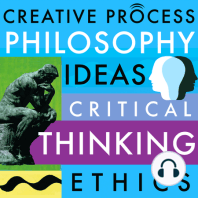12 min listen

MARK BURGMAN - Director, Centre for Environmental Policy, Imperial College London - Editor-in-Chief, Conservation Biology
MARK BURGMAN - Director, Centre for Environmental Policy, Imperial College London - Editor-in-Chief, Conservation Biology
ratings:
Length:
44 minutes
Released:
Mar 1, 2023
Format:
Podcast episode
Description
Mark Burgman is Director of the Centre for Environmental Policy at Imperial College London and Editor-in-Chief of the journal Conservation Biology. He is author of Trusting Judgments: How to Get the Best Out of Experts. Previously, he was Adrienne Clarke Chair of Botany at the University of Melbourne, Australia. He works on expert judgement, ecological modelling, conservation biology and risk assessment. He has written models for biosecurity, medicine regulation, marine fisheries, forestry, irrigation, electrical power utilities, mining, and national park planning. He received a BSc from the University of New South Wales, an MSc from Macquarie University, Sydney, and a PhD from the State University of New York at Stony Brook. He worked as a consultant ecologist and research scientist in Australia, the United States and Switzerland during the 1980’s before joining the University of Melbourne in 1990. He joined CEP in February, 2017. He has published over two hundred and fifty refereed papers and book chapters and seven authored books. He was elected to the Australian Academy of Science in 2006.“And we are all wondering the same thing about our threatened species, and so we did some experiments and that's when we found that asking the best-regarded person is a mistake. You don't ask them. They're usually overconfident, and they know more than a random person from the street. But if you are interested and you understand the data and the jargon, then your judgment will be as good as anyone else's. And then I've got a much wider pool of people. I can go to people who are interested than people who profess knowledge and insights. Get them together, talk to them, facilitate the discussion in a structured way, and generate an answer. And that's, we did that because we were interested in conservation problems, but it has implications for expert judgment in epidemiology, medicine, dentistry, social security, national security, and geopolitics. These same questions and these same constraints arise. And so the results of that work are much more generally useful than just conservation.”www.imperial.ac.uk/environmental-policy www.conbio.orgwww.creativeprocess.info www.oneplanetpodcast.orgIG www.instagram.com/creativeprocesspodcast
Released:
Mar 1, 2023
Format:
Podcast episode
Titles in the series (100)
Highlights - Bertrand Piccard - Explorer, Founder, Solar Impulse Foundation: 1000+ Profitable Climate Solutions: Conversation on profitable climate change solutions, Solar Impulse Flight, spirituality, changing legal framework and norms by Philosophy, Ideas, Critical Thinking, Ethics & Morality: The Creative Process: Philosophers, Writers, Educators, Creative Thinkers, Spiritual Leaders, Environmentalists & Bioethicists